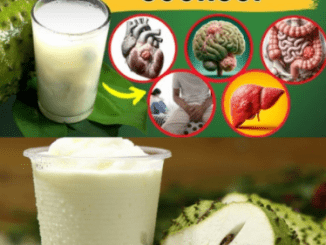
Understanding Kidney Stones
Imagine your kidneys as natural filters, constantly removing waste and balancing fluids in your body. But sometimes, minerals and salts in your urine clump together, forming hard deposits called kidney stones. These stones can be as small as a grain of sand or as large as a golf ball. While tiny ones may pass unnoticed, larger stones can cause excruciating pain and serious complications if ignored. The good news? Kidney stones are treatable and often preventable.
What Are Kidney Stones Made Of?
Not all kidney stones are the same. They vary depending on the substances in your urine:
- Calcium stones – The most common type, often made of calcium oxalate.
- Uric acid stones – Linked to diets high in red meat or conditions like gout.
- Struvite stones – Usually form after urinary tract infections.
- Cystine stones – Rare and caused by a hereditary condition that affects amino acid processing.
Think of them as different “recipes” for stones—each with unique triggers and solutions.
Causes of Kidney Stones
Several factors can lead to the formation of stones in your kidneys:
- Dehydration – Not drinking enough water concentrates minerals in the urine.
- Diet – High salt, sugar, and animal protein intake increases risk.
- Genetics – Family history raises your chances.
- Medical conditions – Gout, obesity, and digestive issues contribute to stone formation.
- Medications and supplements – Excessive use of calcium or vitamin D can sometimes lead to stones.
In short, kidney stones are often the body’s way of saying, “You’re out of balance.”
Symptoms of Kidney Stones
Not all kidney stones cause symptoms, but when they move or block the urinary tract, the pain is unforgettable. Common signs include:
- Severe, sharp pain in the back or side (renal colic)
- Pain radiating to the lower abdomen or groin
- Frequent and painful urination
- Blood in urine (pink, red, or brown)
- Cloudy or foul-smelling urine
- Nausea and vomiting
- Fever and chills (if infection is present)
If you’ve ever felt sudden stabbing pain in your side, you know why kidney stones are often described as one of the most painful medical conditions.
Video : What Causes Kidney Stones? – Arash Shadman
How Are Kidney Stones Diagnosed?
Doctors use several methods to confirm kidney stones:
- Imaging tests – CT scans, ultrasounds, or X-rays reveal the size and location of stones.
- Urine tests – Identify excess minerals or crystals.
- Blood tests – Check for high calcium, uric acid, or kidney function issues.
- Stone analysis – If you pass a stone, it can be examined to determine its type.
Accurate diagnosis is crucial for choosing the best treatment and preventing recurrence.
Treatment Options for Kidney Stones
The right treatment depends on the size, type, and severity of your stone:
- Hydration and pain relief – Drinking plenty of water (2–3 liters daily) and taking pain relievers helps pass small stones naturally.
- Medications – Alpha-blockers relax the urinary tract muscles, making it easier to pass stones.
- Extracorporeal Shock Wave Lithotripsy (ESWL) – Breaks stones into smaller pieces using sound waves.
- Ureteroscopy – A thin scope removes or breaks stones inside the urinary tract.
- Percutaneous nephrolithotomy – A surgical option for very large stones.
While small stones often exit on their own, larger ones usually need medical intervention.
How to Prevent Kidney Stones
Prevention is key, especially if you’ve had stones before. Simple lifestyle changes can reduce your risk:
- Stay hydrated – Aim for clear or pale-yellow urine as a hydration marker.
- Limit sodium – Too much salt increases calcium in urine.
- Eat more fruits and vegetables – Their natural citrate helps prevent stone formation.
- Reduce animal protein – Excessive meat increases uric acid levels.
- Moderate calcium intake – Don’t overdo supplements; get calcium mainly from food.
- Avoid sugary drinks – Soda and high-fructose beverages raise stone risk.
Prevention is like regular maintenance for your kidneys—it keeps them running smoothly and stone-free.
Lifestyle Tips for Kidney Health
Beyond diet and water intake, healthy habits can support your kidneys:
- Exercise regularly – Helps maintain a healthy weight and lowers risk factors.
- Manage stress – High stress can indirectly affect your body’s balance.
- Limit alcohol – Excess alcohol can dehydrate and strain your kidneys.
- Routine check-ups – If you’re prone to stones, regular urine and blood tests can catch issues early.
Your kidneys thrive when your entire body is cared for.
Video : Kidney Stones: Learn@Visible Body
Conclusion
Kidney stones may be common, but they don’t have to control your life. By recognizing symptoms early, seeking timely treatment, and adopting preventive habits, you can manage and even avoid this painful condition. Staying hydrated, eating a balanced diet, and making smart lifestyle choices are your best defenses. Remember, your kidneys are vital filters—keep them clean, and they’ll keep you healthy.


